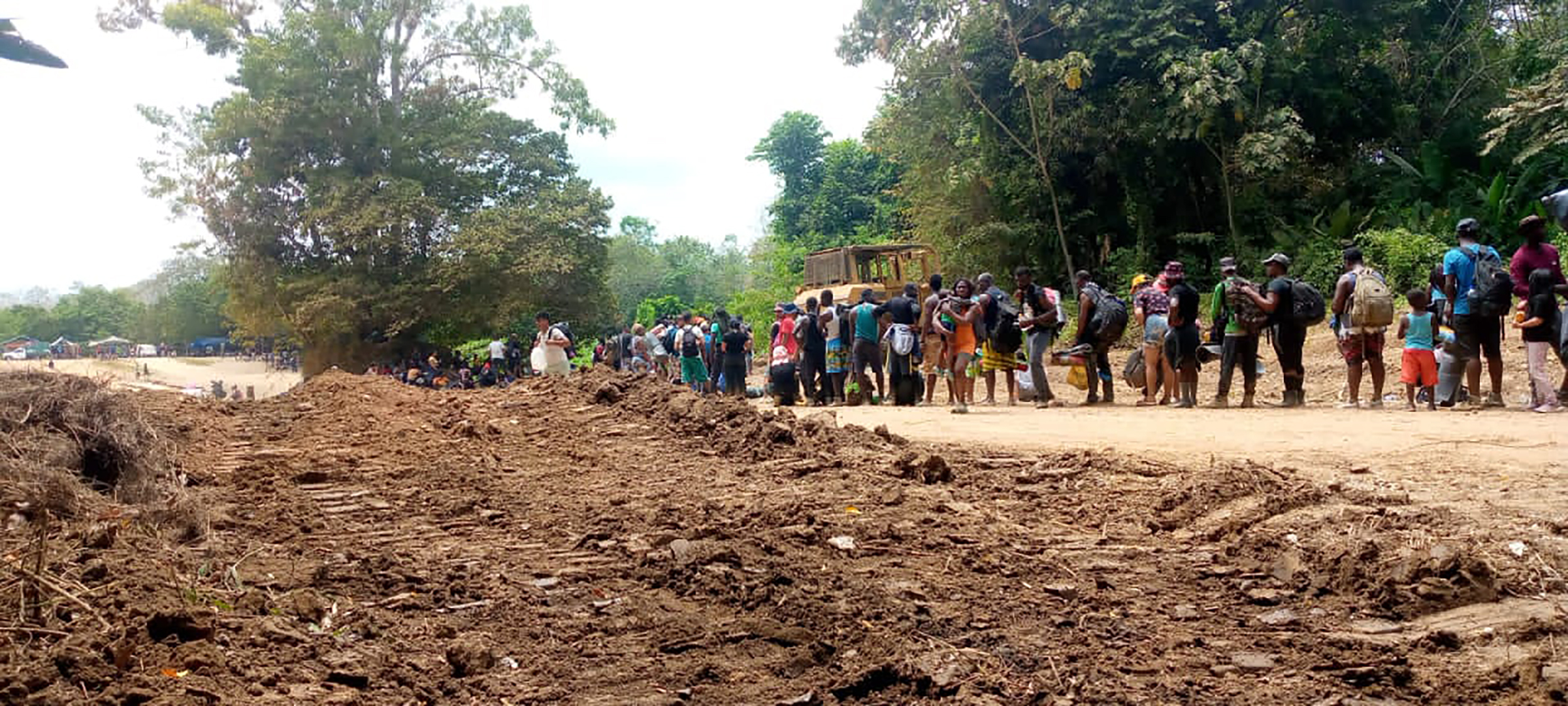A Venezuelan Migrant’s Story
One migrant’s journey through South and Central America to seek asylum in the United States.
One migrant’s journey through South and Central America to seek asylum in the United States.
The following article was published in the July-August 2023 issue of NewsNotes.
Right now, tens of thousands of people in Central and South America are beginning a months-long journey to the U.S. border. One recently arrived migrant generously shared his story for publication under a pseudonym:
Andrés is a 26-year-old man from Venezuela who traveled over 3,300 miles across South and Central America to reach the U.S. border with Mexico. Under the Maduro regime, Venezuelans have experienced extreme food and medicine shortages, and, Andrés says, a government where laws are not equally applied. Identifying as gay, he felt like a target and decided he must leave. Without proper travel documents or much money, he began by walking 70 grueling miles through the dense jungle of Panama’s Darien Gap, where death by drowning or falling is not uncommon.
After surviving the jungle, he passed through Costa Rica, Nicaragua, Honduras, and Guatemala by foot and bus in a matter of weeks. Andrés says, “in Panama we were delayed three days [at a UN migratory station] due to the deaths that occurred,” referring to a bus full of migrants that tumbled off a cliff killing at least 39. The waters for bathing at the UN migratory station were downstream from human sewage. “More than one person contracted a skin fungus.”
Once in Mexico, Andrés joined countless desperate migrants who, over the years, have latched or thrown themselves onto “La Bestia” (The Beast), the freight train that runs north from Chiapas to the U.S. southern border. Falling would mean a swift and certain death. Perched on top of the train, migrants are vulnerable to harassment by locals who pelt them with rocks. A nine-year old girl in Andrés’ party nearly lost an eye.
Throughout the journey there is constant anxiety. The immigrants’ presence in every country along the route is unauthorized. They are easy to spot, from their stale clothes, their thick Venezuelan accents, or for Haitians, their black skin. All are markers of vulnerability, and no opportunity is wasted to gouge them for all they are worth.
At every migration checkpoint, Andrés found a bypass controlled by organized criminals who demanded a fee. Locals joined in by charging high prices, and Andrés heard tales of law enforcement handing migrants to cartels for slave labor. He estimated that the extra charges cost him $2,500, all while subsisting on a diet of bread, water, and the occasional cookie.
Despite his difficulties, Andrés says he has been lucky. He made it into the United States, where he requested asylum. The U.S. Customs and Border Patrol sent him to a detention center in Louisiana, where he spent one month behind bars for the first time in his life, not knowing if he would be released to friends in New York or to the dangerous streets of Tijuana, Mexico. Others he was imprisoned with had been detained for as long as five months. “The desperation really gets to you,” Andrés said of that time. He made it to New York.
Along his route, too, he has been lucky. He was fortunate to be able to have family and friends to wire money to him as we traveled. Carry it with you and you risk losing it all to muggings. In fact, part of what makes the journey take so long for most other people is they must wait to earn the money to make it past the next checkpoint.
Andrés is still haunted by his last night in Mexico when he was nearly kidnapped by a roving mob. Had strangers not come to his rescue, he does not know where he would be now.
Catholic social teachings are unambiguous. They assert the duty of wealthy nations to accommodate migration flows and work to address the causes of forced migration. The U.S. Conference of Catholic Bishops explains that, while nations have a right to enforce their laws and borders, the first duty of Christians is to “welcome the foreigner out of charity and respect for the human person.” Efforts to enforce the law must respect the dignity of migrants, the importance of family unity, and the right of persons to migrate when they are unable to support themselves or their families at home.
Pope Francis writes, “Merciful God… Inspire us, as nations, communities, and individuals, to see that those who come to our shores are our brothers and sisters. May we share with them the blessings we have received from your hand.”
Faith in action
- Volunteer at Annunciation House in El Paso, Texas, which welcomes short and long-term volunteers to provide hospitality to migrants. Learn more at https://mogc.info/AH-volunteer
- Join an immersion trip to El Paso/Juarez organized by the Maryknoll Father and Brothers https://mogc.info/border-immersion
Photo of immigrants in the Darien Gap courtesy of the article’s anonymous source.

